It takes a lot of confidence and a can-do attitude to lead a successful business. As a CEO, you must be confident in your skills and able to take your business from one level to the next. Still, there’s always room for improvement, which is where executive business coaching comes in. There are several advantages to hiring the services of an executive coach.
As a business leader, you’re well aware of the many challenges of running and growing your business. These challenges are even more pronounced in a family-owned business, given the complexities of working with close family members.
The appeal of a family-owned business lies in the ability to pass down wealth and keep a company alive through generations. Currently, only 34% of family-owned businesses have a solid, formal plan for how to do so. When executed properly, a family-owned business can grow and survive multiple generations. However, one major challenge with family businesses is that feelings can get in the way of logic.
Leading a family-owned business needs a specific set of tools to succeed. An executive business coach who specializes in family businesses will equip you with these tools and their applications so you can leverage your unique business dynamic for success. Here are 10 signs that your family business needs executive coaching.
1. You’re Ready To Retire as the CEO, and You’re Not Sure When To Begin
One of the traits of a good leader is having eyes on the horizon and making decisions at the moment that will benefit the business in the long run. This includes knowing when to let go of the reins. A good leader knows when to step down and let someone else take over.
Perhaps you feel that your time as captain is coming to an end, but you are not sure how to go about the whole process. Retirement is a significant life decision that influences you both professionally and personally. Several factors can go overlooked during this process with all of the work that needs to be done, which is why an executive coach can be of help.
Proper planning will ensure a smooth transition and continuity after you step down as CEO. An executive business coach has the experience and necessary tools to plan effectively for your retirement. There are significant business and personal decisions that must be made.
First, you’ll have to plan for management succession, your retirement needs, and, in some cases, the transfer of ownership to family members. Addressing these issues early on greatly improves the chances of the business landing on its feet and proceeding without any major hiccups.
With retirement, it’s vital to get the timing right, and an executive coach will help you determine whether or not this is the best time. The question of whether it’s the right time or not can be hard for you to answer with clarity, given that you’ve held an influential position, and giving it up can feel like stepping off a cliff.
An executive coach will help guide you through the process and create a retirement plan for you to transition out of the day-to-day operations. There’s always a learning curve for new management, which is why you’re supposed to ease out of the position instead of abruptly announcing your retirement.
An executive coach will also help you deal with any fears you might have about losing relevance, which is typical for anyone stepping down from a position of power. They’ll help you discover the freedom to explore several other things life has in store for you. In addition, they’ll help you effectively plan for the next chapter of your life so you can step boldly into the unknown.
2. You Need Help Thinking Through the Transition
A lot of thought and decision-making goes into the transition process, especially concerning your succession. Succession planning for a family business should be a well-thought-out process to ensure the longevity of the business.
One of the main problems with succession planning for family businesses is insisting that the younger generation take over the leadership roles without adequately preparing them for the job. It is natural to want the company in the hands of a trusted family member, as 40% of family businesses in the US and about 80% in Canada fall into that category. But when preparing and considering them for the top position, treat them like you would a non-related employee. They should have the skills, training, and experience needed to run the company comfortably.
One method that companies find successful is having the family members work at multiple levels in the organization before being promoted to a senior role. This way, they learn about the company from the ground up, and this knowledge and experience will help them make the right decisions as a senior executive.
An executive coach can help you overcome the unique challenges that come with succession planning in a family business. The conversations around the next leaders can be inherently emotional and more complicated due to family dynamics and individual expectations.
You can work with your coach to put a talent development plan in motion to create a sense of structure around the path to leadership. This will help clarify expectations for all the family members and avoid conflict.
An executive coach will also help you develop a formal Succession Plan so you can easily track the progress of individuals in the organization and clearly communicate your plan for the company’s future. Having a coach to help with developing your Succession Plan adds objectivity to the process to increase the perception of fairness around how you’re making the decisions.
3. You’re Afraid to Truly Let Go of Running the Business
Sometimes, it’s hard to let go of the reins because you’re worried your successor or the next generation of your family won’t run the business the way you have. Perhaps you are concerned that the person you’ve chosen has never been a leader before, so they might have a problem making executive decisions.
They’ll need to understand the business, the financials, principles of sales growth, and a lot more to successfully run the business when you’re gone. This can all feel overwhelming because there’s so much you need to teach them before you can comfortably step down from the leadership position.
It is easier to let go when you’ve been planning for the transition over a long period. Rather than making changes overnight, it’s advisable to move the next generation into governance roles with increasing involvement over time. This time is used to mentor the new leaders and invest in education and performance evaluation to help them gain the knowledge and experience they need for their roles.
An executive coach will walk your next generation of leaders through executive leadership coaching, which will help them get in shape for the job. Having an executive coach handle the training will ensure they have someone who will provide them with real-time help and valuable feedback throughout the process, and you can truly detach yourself from the business.
A coach offers an objective perspective, and they can look at your successors without bias. They make observations, listen to them, and ask questions to help them in their process of self-discovery. This way, they gain clarity on your future leaders’ strengths and weaknesses and develop action plans to help them build the skills they need to run the business effectively.
4. You Need Help Planning a Future Vision

The world is constantly changing, and sometimes you can be unsure about how to adapt to the changing landscape of your industry or market. What worked before when you were in charge doesn’t necessarily mean it will continue working with the changing workforce.
With the many changes in the area of technology, all aspects of the business have been affected. Sales, marketing, accounting, advertising, and even customer relations have changed dramatically. The way you manage your workforce is rapidly changing, considering the new work-from-home and hybrid models.
Your family-owned business would benefit from a fresh perspective. While you might fear that too much is changing, in some cases, that change is necessary to remain competitive in an increasingly cut-throat world. Your impulse might be to rein in the changes. An executive coach will help bring out the best in your new leaders, encouraging traits like creativity and innovation for the longevity of your business.
An executive coach will help you plan a future vision for your business. Every business plan should be a dynamic document that’s addressed regularly to ensure the strategies you have in place are not irrelevant. Your coach will help you touch base with your business plan and make accommodations for any changes that may affect your business directly or indirectly.
When your team is aware of the plan and the steps that should be taken to get there, it’s easier for them to get on board and work toward attaining business goals. If they lose sight of the big picture, it’s easy to get lost in the now and lose track. A business coach will help get you and your team on the same page with well-defined short- and long-term goals.
5. An Unexpected Change Has Occurred
Another sign that your family business needs executive coaching is when you’re having trouble navigating an unexpected change. It’s inevitable, but sometimes it’s so sudden that you’re not adequately prepared to handle it.
Perhaps you need to make a transition quickly due to unexpected passing and a successor is needed immediately. Rapid growth and development can also demand new leadership to take over the business, and you might not be prepared for that. An executive coach can help you navigate through it.
You’ll benefit from executive coaching because you’ll learn specific change management principles that apply to a family business. There are internal and external components of change that have to be considered for effective management. External components, like the passing of an influential senior family member, are observable, but there are also psychological dimensions that are more subtle that need accepting and adapting.
An executive coach will analyze the family business for any signs of resistance to change, learn from that resistance, and then help the members take active steps to address the opposition. It’s easy to wish antagonism away or simply ignore it, but this can brood negative feelings within the company that will ultimately affect the functioning of the business.
An executive coach will help you understand the source of resistance if any, so you can pay special attention to the specific ways in which you can help the family members adapt to the new ways. Addressing resistance positively will ensure better transition management for both the business and the family.
6. You Don’t Have Someone in Your Family Who Can Take Over

As the current owner or business leader, it is not safe to assume that the business will automatically go to the next generation. Perhaps no one in your family wants to take over the business or none of them is prepared and experienced enough to run the company effectively.
In such a case, you’ll need an executive coach to help you make important decisions about the future of your business. Several other viable options are available to you, but you need an objective perspective to help you determine the best course of action.
One of the options you might consider is selling the business to a co-owner. While selling your stake in the ownership is not appealing, you’re assured that the business legacy will continue, even if the business will not stay in the family. An executive coach will walk you through the decision-making process and everything that comes after to ensure everyone is comfortable with the decision.
Another route you could take is naming your successor from a group of qualified candidates within your company. This way, you’re passing the baton to someone you can trust to properly manage the company in the future. Executive coaching will help you and the successor prepare effectively for the transition to ensure it is a smooth process with minimal effects on the day-to-day operations of the business.
Suppose you’re at a point where you’re unsure about the future of the business because you do not have a successor. In that case, a family business coach will help you see the various options available and weigh the pros and cons of each to determine the most beneficial one for both the family and the business. This will provide a clear roadmap for the future and secure your business regardless of change.
7. You’ve Appointed a Family Member as Your Successor, but They’re Not a Good Fit
Leadership transition is not always smooth, which is more popular in family-owned businesses. In some cases, you might appoint a family member to take over the business, but the rest of the family and other non-related employees do not agree with their leadership style or approach to the company.
Coaching during organizational change is crucial because this is a pivotal stage that will significantly impact your business. Coaching will ensure that the employees have the emotional and social support they need to handle the new change. Communication and transparency between the leaders and the employees are vital.
Devising a communication strategy will help handle any objections that may arise from the employees. An executive coach will help you determine the best means of communication for the group to get them on board with the new changes. It’s essential that your employees and other family members feel heard and supported. This creates the healthy environment needed for the business to thrive.
An executive coach will also work with the new leader based on the feedback received from the employees and other family members. Perhaps they need to refine their communication skills or work on their management style. Executive coaching helps ensure cohesion and harmony in the business even during tumultuous times.
8. There Is Internal Strife in the Business, and You Need Impartial Advice
It’s common to have feuds among relatives in a family-owned business. These conflicts typically arise due to the inability of the family members to separate their personal and professional lives. There’s an added layer of rivalry in family businesses, and egos often spill into the business environment.
Feuds of any kind are detrimental to a business since they affect the productivity and performance of the employees. A lot of emotions are involved when the conflicting parties are family members, so resolving disputes in the workplace proves particularly hard.
Solving these problems is easier with executive coaching. They are the perfect mediator because they’ll remain neutral in any type of dispute. A coach will use logical procedures to resolve the conflict without any interfering emotions. This way, you come up with rational, unbiased solutions to workplace disputes.
9. Lack of Support From Your Team
Even the most outstanding business leader cannot ensure the success of their business alone. Leadership is most effective when you have the support of your team. You might have A players who are well trained and qualified for the job, but if they’re not aligned with the business goals, it’s hard to ensure your business thrives.
This can be a significant challenge in family-owned businesses because there’s less pressure to perform. If the employees are not held accountable for their actions, it’s easy for them to take the job for granted. As such, some of the people in your team might not be pulling their weight. They may have lost focus on what truly matters, which is dangerous for any business.
Investing in executive business coaching will help get your team back in shape. Coaching one-on-one is particularly effective at ensuring every team member is firing on all cylinders and aligned with the company values and overall business vision.
An executive coach looks at the root of the matter when solving the problem. Why aren’t your team members supporting you? Are they frustrated? Do they have a problem with your leadership style? Addressing the root cause of the problem ensures it is solved completely and there are no chances of it reoccurring.
10. The Business Is Not Making Meaningful Progress
If you notice the business is not making any progress on strategies, goals, vision, or any other important initiative, then it’s time to consider getting outside input. There are many reasons why businesses get stuck in a rut, but it’s hard to see them from the inside.
There could be one primary reason why your business performance has plateaued or a hundred tiny ones. It might be due to a problem with employee productivity, customer retention issues, or even a lack of synergy with senior management. Sometimes, it is simply because you’ve been doing the same things in the same way for far too long.
Executive coaching will help your business back on track to achieving the set goals and objectives. An outside jolt might be exactly what your business needs to begin the upward trajectory. A coach often works to improve employee engagement and productivity, which translates to increased overall productivity and more profits for the business.
Is Executive Coaching Worth It?
Executive coaching could be exactly what your business needs to move to the next level. An executive coach will help you overcome any significant challenges that your business is facing due to the unique nature of family businesses.
Whether you’re looking to prepare for a transition, solve longstanding conflicts, or avoid future complexities that could curtail the business, executive coaching is an investment guaranteed to pay off in the long run. It all boils down to finding the perfect executive coach for your business. The benefits outweigh the cost by far, so get in touch with a seasoned business coach today.At Champion PSI, we are dedicated to helping business leaders realize their full potential both personally and professionally. Schedule a free 30-minute call to talk to one of our executive coaches today. We will help you understand some of the challenges you’re facing and how we can move ahead to solve them.










